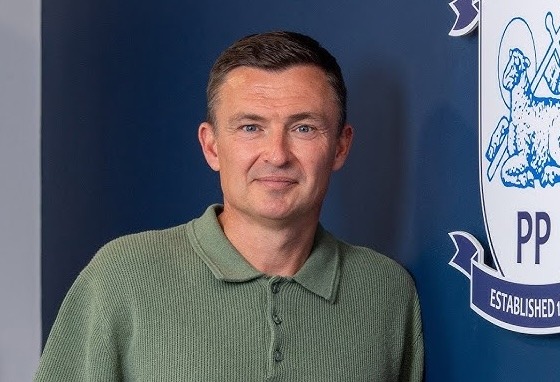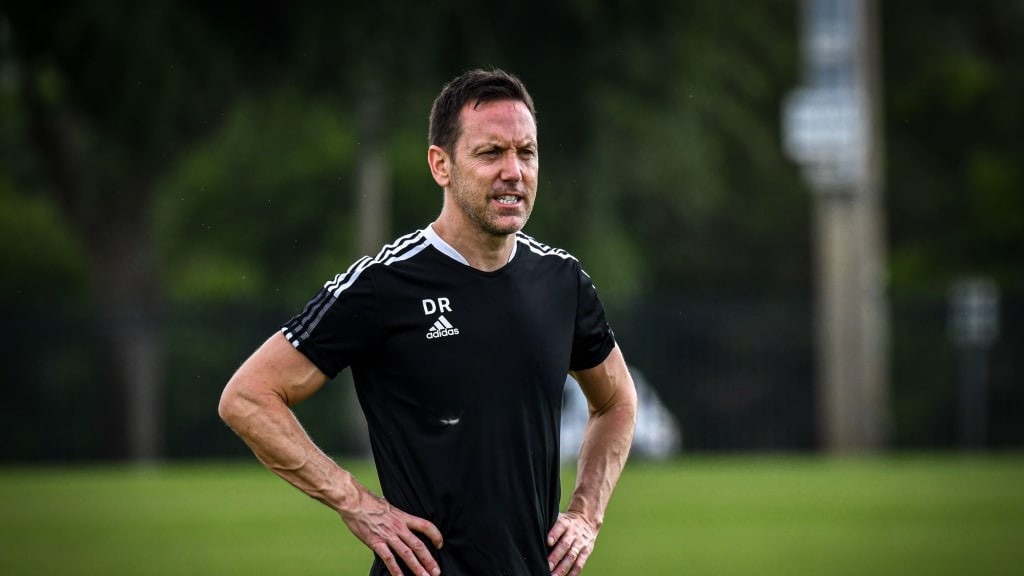
Preston ban external support staff – but is it best policy?
Written by
Simon Austin
August 12, 2025
Preston Manager Paul Heckingbottom has banned his players from working with external support staff following an injury to Daniel Jebbison.
The Canada forward, who is on loan at PNE from Bournemouth, missed the club’s opening-day draw at QPR because of an ankle injury.
Heckingbottom said this stemmed from a private fitness session with Tom King, a former First Team Fitness Coach at Liverpool who now runs a private performance company called King Performance Ideology.
Jebbison, 21, is likely to be out of action for a month. Heckingbottom said goalkeeper Freddie Woodman, now at Liverpool, had also got injured after working with an external fitness coach last season.
After the match against QPR, Heckingbottom said: “Jebbo, I’m angry about that one. There’s a growing trend of footballers (having) their own people they work with.
“He’s been working with a fella called Tom King. It’s an accident, I get it, but it’s not happening any more with any Preston players. We had it with Freddie last season doing the same.
“And these guys, they work with the players and post their work all over social media and want to promote their business and are happy to take the money. They don’t give us any money back when they injure the players in their sessions.
“They’ll not be posting on social media that Jebbo’s out for a month, so I’ll tell everyone. So I’m really angry about that, really angry. It’s professional players trying to better themselves, I get that, but my anger is with the people who work with them and don’t suffer when they injure players.
“If we injure players – they get injured in training, in a game, in the gym – then it’s on us, it’s us who suffer. When other people do it, they’re happy to post all the positives and take the player’s money, but they don’t get any of the negatives with it.
“So they’re not getting any of the joy out of punishing Preston any more, it’s not on.”
TGG has contacted King for a response but is yet to hear back.
‘No choice but to accept external support staff’
However, is it realistic or constructive to ban players from working with external support staff?
After all, this is a growing trend in the modern game – and often for good reasons.
In an article for TGG last year, Dr Ben Rosenblatt (former Lead Men’s Physical Performance Coach for England) and James Collins (former Arsenal Head of Nutrition) laid out some of these reasons.
The duo had recently set up a private consultancy called 292 Performance.
“A player’s career could include seven or more transfers to different clubs, each having different resources for performance support, so it seems sensible to have constant support throughout,” they wrote.
“Within the club environment, external support may also be required due to a lack of resource and also a lack of internal staff time to deliver deep, individualised work.”
There was often a specific demand from loan players (like Jebbison), they said.
“Fully supporting loan players from a physical performance and nutrition perspective can also be difficult, meaning ongoing support and communication from the parent club could be limited,” the duo wrote.
They concluded: “We believe players seeking external support should actually be seen as a positive because, fundamentally, they are aiming to take ownership of their preparation and recovery to maximise performance.
“There is an opportunity for an external service to provide a trusted extension to the club’s existing support team.”
⚪ "They work with these players and post their work over social media...but we don't get any money back."
— BBC Sport Lancashire (@BBCLancsSport) August 10, 2025
Frustration for #Preston North End boss Paul Heckingbottom after Daniel Jebbison suffered an injury working with a private fitness coach#pnefc | #bbcfootball
Former PSG, Lille and Lyon Head of Performance Martin Buchheit concurred.
In an article for TGG in December 2023, he wrote: “The reality is that we often have no choice but to accept and adapt to players forming their own support teams and bringing in external specialists” and that “opposing a player’s choice in this matter can be counter-productive.”
Banning external support staff could create the risk that players continue to see them secretly.
Buchheit said the best approach was to “foster a collaborative rather than adversarial relationship with these external teams.”
“The onus is on us, in the clubs, to initiate and maintain transparency and open communication,” he said. “I’ve always tried to engage proactively in dialogue that prioritises the player’s welfare, despite the challenges it may pose to my professional pride.”
Rosenblatt and Collins agreed that communication and co-operation was the best policy.
“Ensuring that the external support team have the appropriate skills, qualifications and are following the same company systems/ methodology is crucial to solving the player’s performance problems,” they wrote.
“Making sure they are trusted by the club will also mitigate the threat of a player making bad decisions for their preparation and recovery – such as seeing external staff who are motivated by short-term money or fame.
“If the external support team has industry credibility and rare expertise that isn’t consistently available internally, they can become a trusted, valuable extension of the club’s team.”
Follow Us
For latest updates, follow us on X at @ground_guru





